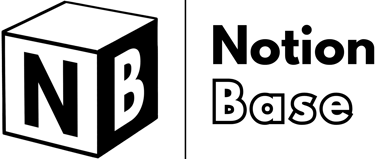NOTION SYSTEMS LAB — PRE-ORDERS END FEBRUARY 22 — 50% OFF BEFORE DOORS CLOSE
Coda vs Notion: A Comprehensive Comparison
How to choose between Coda vs Notion? While Coda excels in automation and interactive documents, Notion offers a more intuitive approach to personal organization. This article explores their key differences to help you make an informed decision.
2/22/20256 min read
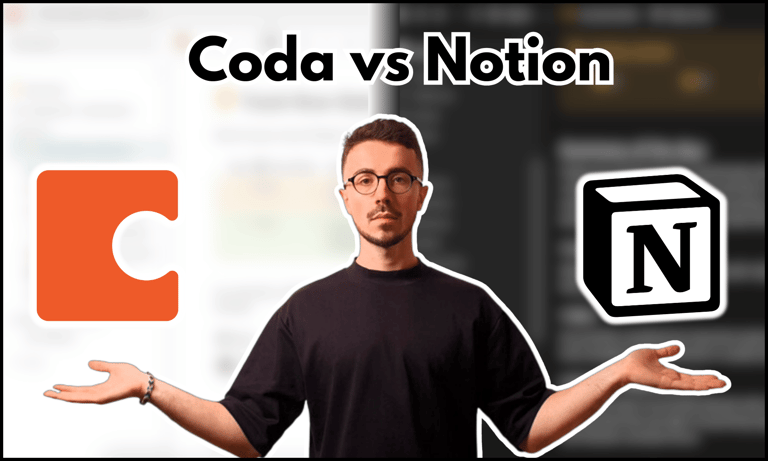

Coda vs Notion
When it comes to productivity tools, two names frequently come up in discussions: Coda vs Notion. Both platforms offer powerful features for organizing work, collaborating with teams, and managing data efficiently.
However, they cater to slightly different audiences and use cases. This article explores the key differences between these two tools, highlighting their strengths and helping you decide which one suits your needs best.
Table of Contents
Overview: What Are Coda and Notion?
Before diving into a detailed comparison, it's important to understand what Coda and Notion are and how they function as productivity tools.
What is Coda?
Coda is a document-based collaboration tool that combines elements of spreadsheets, databases, and interactive apps. Unlike traditional word processors, Coda allows users to create dynamic pages filled with tables, buttons, and formulas.
It is especially well-suited for teams looking to automate workflows and integrate external apps into their documentation process. With Coda, users can build highly customizable documents that function like lightweight applications.
What is Notion?
Notion, on the other hand, is a powerful all-in-one workspace designed for note-taking, project management, and collaboration. It uses a block-based system, where every piece of content (text, images, checklists, databases) exists as a modular block that can be easily organized and linked.
Notion is particularly popular among individuals and small teams looking for a streamlined way to manage information, create knowledge bases, and improve personal organization.
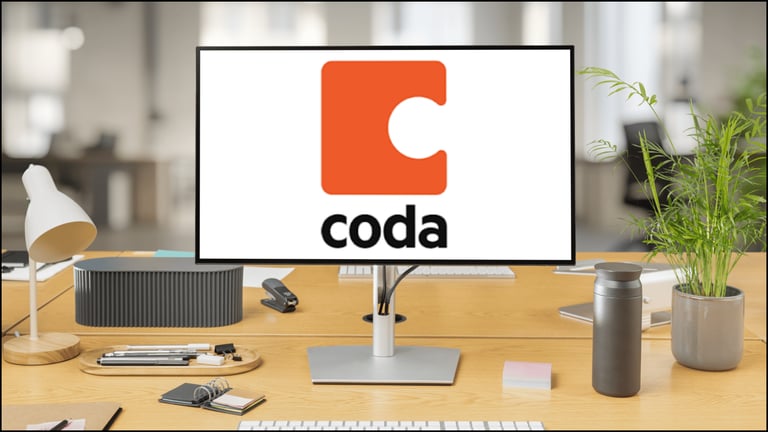

Coda vs Notion: Key Differences at a Glance
Coda is designed for automation and workflow efficiency, while Notion prioritizes ease of use and content structuring.
Coda integrates deeply with third-party apps through Packs, whereas Notion focuses on seamless internal linking and database management.
Notion excels in personal organization, making it ideal for individuals, while Coda is better suited for teams managing complex projects.
Coda enables advanced formulas and interactive elements, while Notion uses a more straightforward block-based system for organizing information.
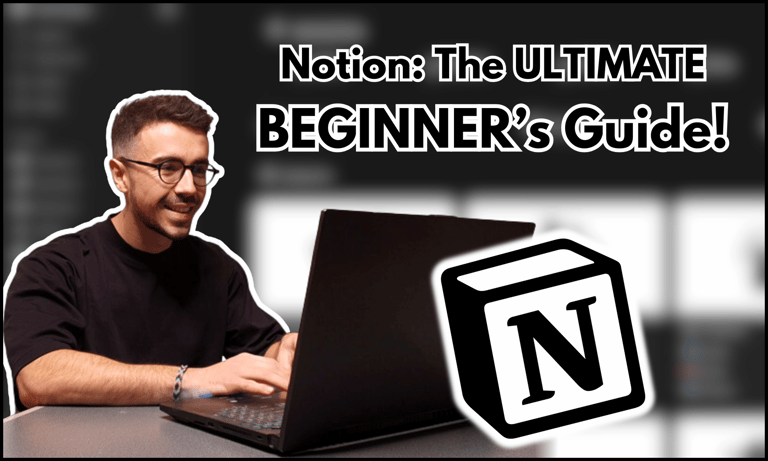

Read this article to learn more about how to use Notion.
User Interface and Experience: Coda vs Notion
How a tool feels and functions plays a crucial role in adoption and daily usability.
Coda's Interface
Coda’s interface is designed for those familiar with spreadsheets. It provides structured document navigation with pages, subpages, and collapsible sections. The inclusion of dynamic elements like interactive buttons and embedded apps creates a more engaging experience.
However, the learning curve can be steeper due to the number of customization options available.
Coda vs Notion: Interface Comparison
Coda: Best for users who prefer a spreadsheet-style layout with automation options.
Notion: More suitable for users who want a clean, structured note-taking system.
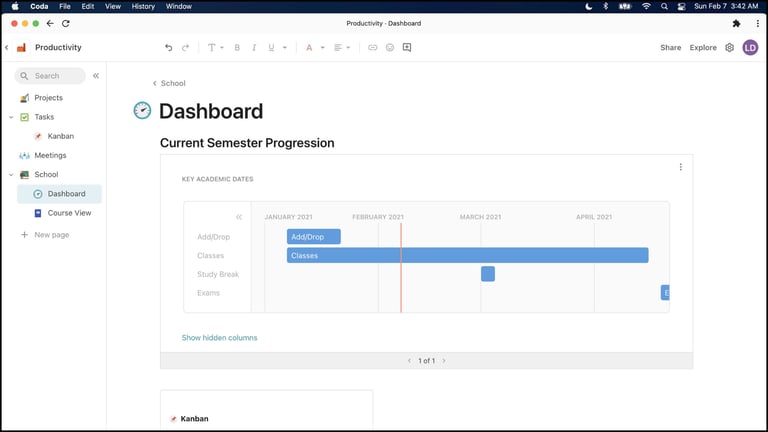

Notion’s Interface
Notion, by contrast, has a minimalist, block-based interface that is easy to navigate. Users can drag and drop blocks effortlessly to organize content. It also offers dark mode and custom themes for a personalized user experience.
While Notion lacks some of the dynamic interactivity of Coda, its simplicity makes it highly accessible to new users.
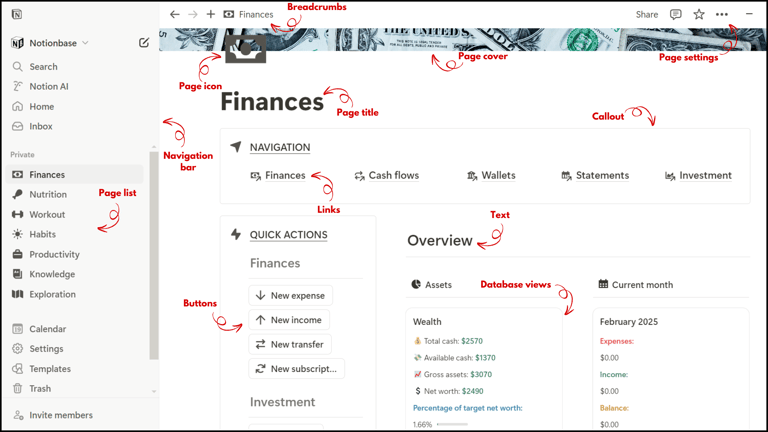

Features and Functionality: Coda vs Notion
Both Notion and Coda provide a versatile workspace for individuals and teams, but their core functionalities have unique distinctions.
Coda’s Strengths
Coda structures content as interactive documents with tables, formulas, and integrations. It connects with external apps like Slack, Gmail, and Google Calendar, enabling enhanced automation. Users can also set triggers and actions to automate workflows, making it a dynamic tool for managing tasks efficiently.
Additionally, Coda allows for advanced formulas and relational tables, making it a flexible option for data-heavy workflows.
Notion’s Strengths
Notion, on the other hand, is an all-in-one workspace that combines note-taking, databases, and wikis. It offers a variety of templates to streamline workflows and allows linking between different content types.
Although it has limited offline functionality for now, it remains an excellent choice for users who prioritize content structuring. The simplicity of its block-based system makes it accessible for users who want to focus on personal organization rather than advanced automations.
Coda vs Notion: Key Functional Differences
Coda is better suited for structured data and automation.
Notion is more intuitive for content creation and note-taking.
Coda integrates deeply with third-party tools through Packs.
Notion allows for easy relational database management within the same workspace.

Learn more about Notion here.
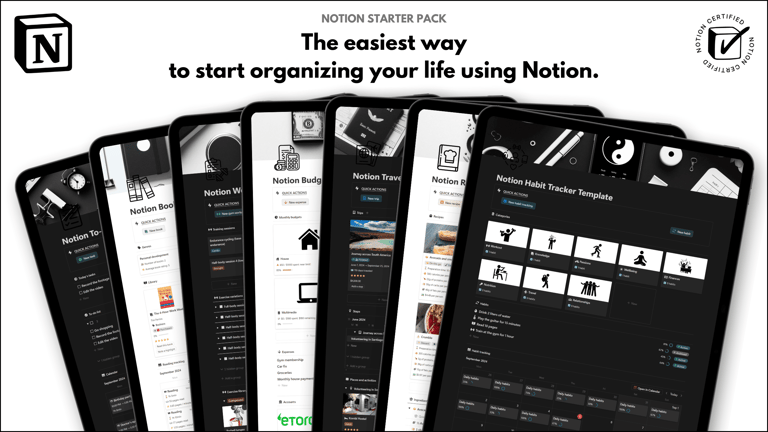

Save hours building from scratch!
Get instant access to 7 free Notion templates with the Notion Starter Pack.
Collaboration and Team Workflows: Coda vs Notion
For teams, effective collaboration features are essential for improving productivity. Let’s compare Coda vs Notion in this regard.
Collaboration in Coda
Coda enables organizations to build dynamic knowledge bases, reducing repetitive tasks through automatic triggers and actions. Its pre-built project management templates make tracking tasks and goals more efficient.
It also includes real-time collaboration with detailed permission settings, making it ideal for teams managing large-scale workflows.
Collaboration in Notion
Notion supports real-time editing, allowing teams to work on documents simultaneously. Users can set different access levels for team members and communicate directly within pages using comments and mentions.
While Notion does not have as many automation features as Coda, it excels in personal organization and structured documentation for teams that do not require advanced workflow automations.
Best for Teams or Individuals? Coda vs Notion
Coda: Best for teams that need automation and integrations for efficient workflows.
Notion: Ideal for content collaboration and knowledge management.
Pricing and Value for Money: Coda vs Notion
Budget considerations can greatly influence the choice of a productivity app. The prices listed below reflect monthly payments, but opting for an annual subscription can lower the overall cost.
Coda’s Pricing
Free Plan: Basic features with limited document size.
Pro Plan: $12 per user/month, offering advanced customization and automation.
Team Plan: $36 per user/month, including collaboration tools and team-based features.
Enterprise Plan: Custom pricing for large-scale organizations with extensive automation needs.
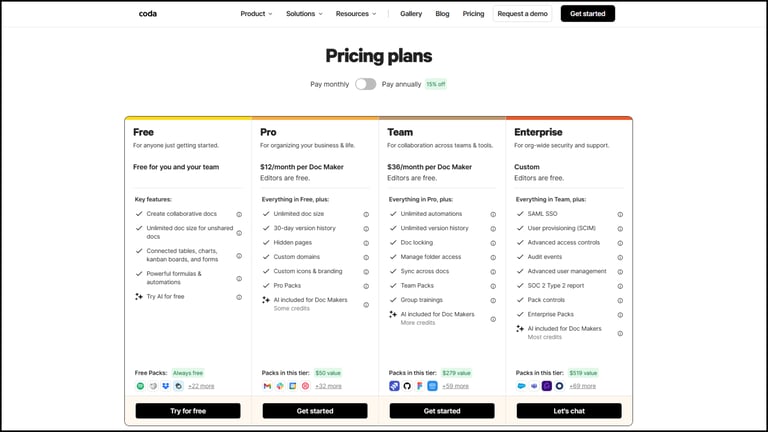

Notion’s Pricing
Free Plan: Generous features for personal use, including unlimited pages and blocks.
Plus Plan: $12 per user/month, with advanced database features and more storage.
Business Plan: $18 per user/month, including admin controls and enhanced collaboration.
Enterprise Plan: Custom pricing for organizations requiring security and compliance tools.
Best Value for Your Needs: Coda vs Notion
Coda tends to be more expensive, particularly for teams that need extensive automation and integrations. However, its pricing is justified by the level of control and flexibility it provides in document management and workflow automation.
Notion, in contrast, is a more budget-friendly option, making it an attractive choice for individuals and small teams who prioritize personal organization and ease of use.
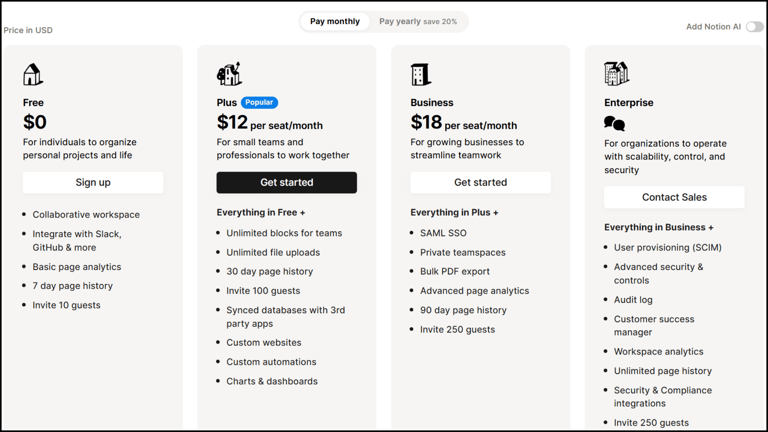

Conclusion: Coda vs Notion
The debate between Coda vs Notion ultimately depends on your workflow and priorities. If your focus is on automation and interactive documents for team collaboration, Coda is a strong contender. Its ability to integrate with external tools and automate processes makes it ideal for businesses handling complex projects.
That said, if you need a powerful tool for personal organization, Notion excels with its intuitive interface, flexible databases, and seamless note-taking. Its affordability and user-friendly design make it an excellent choice for individuals and small teams looking for an all-in-one workspace.
Both tools offer powerful features, but your choice should be guided by your specific needs—whether it's automation and integrations with Coda or simplicity and organization with Notion. Understanding your requirements will help you maximize productivity and efficiency.
However, having tried both and being a long-time Notion user, I may be a bit biased. However, if you prefer a structured approach to organizing your information and require seamless, free synchronization across multiple devices, then Notion is the clear choice.
Unlock the ultimate roadmap to a life in order: simply enter your email adress below and a PDF copy will instantly be sent right to your inbox.
Download your free Notion ebook now!
Join The Movement
Follow Notionbase on social media to stay up to date with Notion... and more!
Links
Master Notion in 5 days.
© 2026 Notionbase. Website by William Coste.
Products
